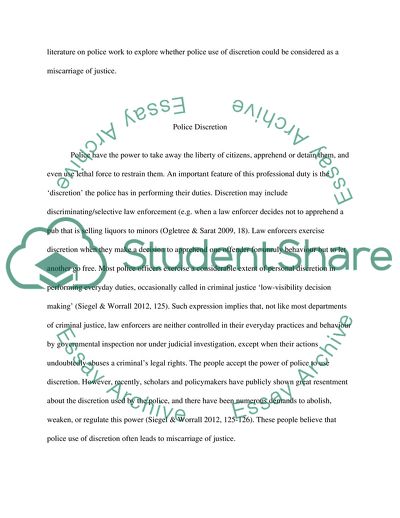Cite this document
(What Are the Advantages and Disadvantages of Police Discretion Literature review, n.d.)
What Are the Advantages and Disadvantages of Police Discretion Literature review. https://studentshare.org/law/1874059-what-are-the-advantages-and-disadvantages-of-police-discretion
What Are the Advantages and Disadvantages of Police Discretion Literature review. https://studentshare.org/law/1874059-what-are-the-advantages-and-disadvantages-of-police-discretion
(What Are the Advantages and Disadvantages of Police Discretion Literature Review)
What Are the Advantages and Disadvantages of Police Discretion Literature Review. https://studentshare.org/law/1874059-what-are-the-advantages-and-disadvantages-of-police-discretion.
What Are the Advantages and Disadvantages of Police Discretion Literature Review. https://studentshare.org/law/1874059-what-are-the-advantages-and-disadvantages-of-police-discretion.
“What Are the Advantages and Disadvantages of Police Discretion Literature Review”. https://studentshare.org/law/1874059-what-are-the-advantages-and-disadvantages-of-police-discretion.


